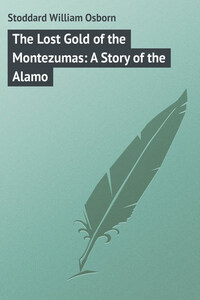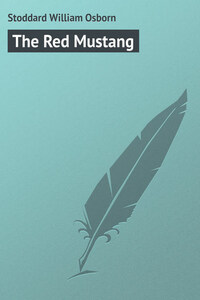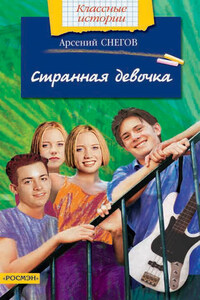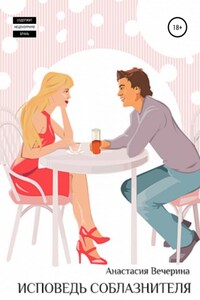CHAPTER I.
ALL AROUND A FIREPLACE
The gate that opened from the yard into the lane leading back to the barn was directly opposite the side-door of the house. The door was shut, but the gate was open; and in it stood a gray-haired dame with a sharp nose and silver-rimmed spectacles. The house behind her was a small one, white-painted, without blinds to its windows, but with an air of snug comfort all over it. Just beyond the gate and the woman stood a tall, vigorous-looking young fellow of not more than eighteen; and his left hand was on the nose of a nice-looking horse; and behind the horse was a neat, bright, very red cutter. The boy's face was also somewhat rosy; and so, for that frosty moment, was the tip of his mother's nose.
"Now, Lavawjer, that there cutter's all you've got to show for about as hard a month's work as ever you put in; but I won't say that the deacon drew a hard bargain with ye."
"Well, mother, just look at it."
"I'm a-lookin' at it, and it isn't the cutter it was. You've had it painted red, and varnished, and you've put on a new goose-neck in place of the broken one, and there's room in it for two if neither one on 'em was too heavy."
"That's so, mother; and all you've got to do is just to try it. I'll take you to meeting in it next Sunday. You ought to see how the colt gets over the snow with only that cutter behind him."
"I ain't a bit sorry you've got somethin' for him to do. You've been a-raisin' on him since before he was a yearlin', and he hasn't earned his keep."
Mrs. Stebbins had made her first look at her son's new cutter a severe and searching one, and she told him very fully all her thoughts about it and about the sorrel colt. She was a faithful mother; but there was pride in her eye, and more red on the tip of her nose, when she turned to go into the house. He did not hear her say to herself, —
"He's the smartest boy in all Benton Valley, and now he's got the nicest horse and cutter, – that is, for his age, considerin', – and I ain't one bit afraid it'll spile him."
He was now leading his sorrel pet, with the jaunty cutter following, out through the lane to the barn. It was a grand thing, and out of the common range of human events, for a country-boy of his age to have such an outfit all his own. Such things can always be accounted for, when you find them happening. If he were not just a little "spiled," it was no fault of his mother. She was a widow, and he was her only son; and she had talked to him and about him pretty steadily from the day he was born. He looked older than he really was now, and she often said so; but she sometimes added that he knew enough for a man of forty. She had named him "Le Voyageur," after a great French traveller whose name she had seen in a book when she was a girl; but the Valley boys had massacred all the beauty of it, and shortened it into "Vosh." No other fellow in all that country had so very remarkable a nickname.
"Now, Jeff," he said, as he cast the sorrel loose from the cutter, "maybe there's a chance a-coming that you'll have a better-looking load to haul next time you're hitched in. I'll want ye to show your oats if you do."
That remark could hardly have referred to Mrs. Stebbins and her next Sunday's ride to the meeting-house; but Jeff whinnied gently in reply, as if to express his willingness for any improvement, and Vosh led him into the stable.
"City folks know some things," he remarked to Jeff, while he poured some oats in the manger; "but they don't know what good sleighing is. We'll show 'em, soon as we get some bells; and the deacon's got more buffaloes than he knows what to do with."
That was a good half-hour before supper, and he seemed in no hurry to get into the house; but it was odd that his mother, at the very same time, should have been talking to herself, in default of any other hearer, about "city folks" and their ways and by-ways and shortcomings. She seemed to know a great deal about them, and particularly about their general ignorance concerning snow, ice, cold weather, and all the really good things of genuine winter. Both she and her son evidently had kindly and liberal feelings towards the hardest kind of frost, and were free to say as much, but were in doubt as to whether city people could live and be comfortable in such weather as had already come. Beyond a doubt, they were waiting for somebody. There is nothing else in the wide world that will keep people talking as that will; and Mrs. Stebbins said some things that sounded as if she were asking questions of the teakettle.
Down the road a little distance, and on the other side of it, a very different pair of people were even more interested in city folk, and not in their shortcomings so much as in the fact that certain of them seemed to be too long a-coming. They were away back in the great old-fashioned kitchen of a farmhouse, as large as three of the one in which Mrs. Stebbins was getting supper for Vosh.
"Aunt Judith, I hear 'em!"
"Now, Pen, my child!"
The response came from the milk-room, and was followed by the clatter of an empty tin milk-pan falling on the floor.













